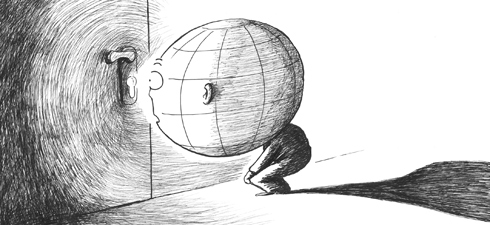Brusselsleaks.com, which set up shop on 9 December, has a homepage on the WordPress blog-hosting service and has invited people to anonymously send in sensitive EU-related documents using an encrypted contact form.
Unlike WikiLeaks, Brussels Leaks will not publishing anything itself but will instead check the documents' authenticity and pass them on to selected media.
The site is planning to shortly release its first batch of papers in the transport and energy sector. "In terms of submissions, we have already had a few via the website which is a good sign," a Brussels Leaks contact said.
"Our ideology is that the EU can be a huge cause for good, but people rightly distrust it because so much appears to happen behind closed doors. By drawing attention to this and its failings, we hope the EU institutions will work to improve their transparency and ensure the voice of the citizen is clearly heard over that of industry, which currently holds far too much sway in Brussels."
The contact added that "documents are leaked very often" in the EU capital but the relatively small number of EU officials and diplomats in the city means that people are wary of publishing them in order not to hurt their sources.
Read the full article at EUObserver.
WikiLeaks
Europe prepares for cyberwar
“Prepare for all-out cyberwar,” headlines the Independent of London. The British government is preparing for “a crippling attack on government websites” as a backlash against the arrest of the WikiLeaks founder Julian Assange is grows. Extra security measures have been added to government web services, it says, in particular those used to claim benefits or provide tax information. The paper also notes the recent attack on US news blog Gawker as proof of the power of online “hacktivists”. Moreover, reports' France's Libération, "following repeated attacks against Wikileaks, the number of mirror sites (sites that host all the data on their servers) have increased (about 1,700 so far but the number is growing constantly). The movement is worldwide: Europe followed by North America, are the two main continents with such hosts: "Germany, Belgium and the Netherlands are the countries with the largest number of mirror sites, mainly in large cities, Berlin, Amsterdam, Brussels and in the Ruhr," says the French daily.
Was this article useful? If so we are delighted!
It is freely available because we believe that the right to free and independent information is essential for democracy. But this right is not guaranteed forever, and independence comes at a cost. We need your support in order to continue publishing independent, multilingual news for all Europeans.
Discover our subscription offers and their exclusive benefits and become a member of our community now!












